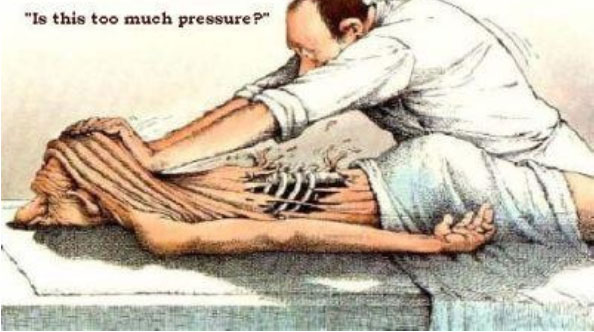
The topic of “stress” comes as a request from one of my sisters. I thanked her for the idea, since after many years of writing an article every month, it is sometimes difficult to think of an interesting topic! Rather than echo well known and valid remedies for stress such as exercise and meditation, the focus of this article will include a couple of aspects of the “civilized” stressors… Let’s ponder just two aspects of “psychosocial stress,” predominantly social media / disconnectedness, and our basic human nature that desperately cleaves to order in an unpredictable world.
People crave stability and predictability, but we live in this changeable place. For example, we’ve had fairly predictable weather patterns for about one hundred years, and now we are noticing a shift, and this puts people on edge. Likewise, we like our family, friends, neighbors and business to be predictable as well. None of this is realistic. But now we humans are here in this unpredictable place, and with less social connection and support partly because families live far apart, and also the manner in which we now communicate.
It is obvious that society has changed; it is less and less that families sit down and eat dinner together each day, or that friends and neighbors get together for a meal or a cup of tea. Rather, we are communicating through a variety of social media, emails, texts, but if we’re lucky, a phone call. However, there are many cultures that still value getting together every day, (usually to eat!) regardless of the fact that it is in the middle of the day, during business hours. For some, the importance of being socially connected comes before business. During these meals, the entire family, and the extended family, come to know any sensitive situation the other may be experiencing. These family members who value this “connectedness” come to know that what might appear to be “confrontation” to outsiders, is really just everyone showing that they care. No matter how uncomfortable and straight forward such closeness can be, research shows that the cultures that still “close up shop” to eat together on a regular basis have lower rates of heart disease and less problems with cholesterol.
For the most part, we are no longer very socially connected in the U.S. These new forms of communication give a false sense of connectedness. For example, we may write a text and make it sound as if we’re happy, when really the writing is taking place with many tears. The examples are endless, and at the same time, these new forms of communication are very helpful when relating basic information. So what to do? How about if we sit down and eat together on a regular basis. Use email to relate basic information, such as logistics, etc. But why not wait to speak with one another for the dynamic (unpredictable or changeable) situations…or if nothing else, use a phone to hear each other’s voice? That feeling of urgency is what seems to be a large part of stress. The urgency would probably dissipate a little if we take the time to “close up shop” and eat together, but this is most likely unrealistic as well.
Is it possible to strike a balance?
Anything is possible. And it just might require that we stop, think and eat, …and continue with being optimistic as we prepare for some unpredictable situation.
Download PDF file for Stress & Civilization Courtesy of Daisy Lear | St Vrain Valley Acupuncture
Tags: 303.587.3557, 80501, Acupuncture, Chinese medicine, communication, Daisy Lear, daisylear.com, disconnectedness, Longmont, psychosocial stress, social connection, social media, Stress